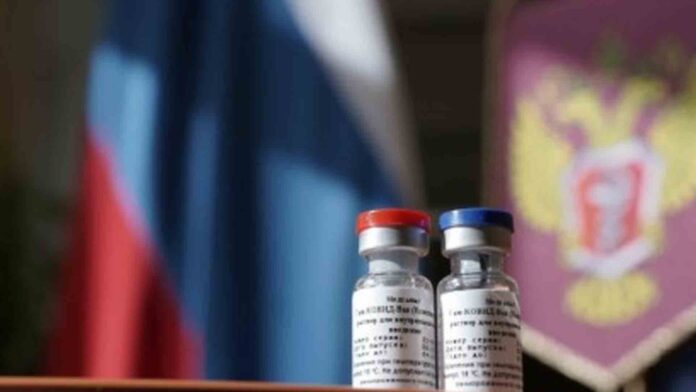The initial batches of Russia’s coronavirus vaccine rolling off production lines as soon as two weeks from now will be earmarked for immunizing doctors before going to the general public, the country’s health minister said Wednesday.
Vaccine production in Russia will be domestic-oriented, geared to covering internal demands, Mikhail Murashko said at a news conference in Moscow giving additional details about the much-anticipated vaccine.
Meanwhile, the Russian Fund of Direct Investment (RDIF) is negotiating the production of the vaccine abroad.
Asked about its safety, Alexander Gintsburg, head of the Gamaleya Research Institute of Epidemiology and Microbiology — which developed the pioneering vaccine — said the vaccine is based on a well-researched scientific platform dating back decades.
“The platform has been in development for 25 years for the purpose of gene therapy, but at the end of 2014 it was used to create drugs to fight the most rapidly changing viruses,” he said.
“The same platform was used to develop vaccines against Ebola, MERS [Middle East Respiratory Syndrome], and a number of other diseases. It allowed the creation of an Ebola vaccine within a fairly short period of 15 months, which later was highly assessed by the WHO [World Health Organization].”
He added: “The technology is not unique, it is also used in the UK and China, but in our case, it has its advantages.”
The vaccine will be monitored and it has a digital passport, with all its moves and inoculation results set to be traced and examined, he explained.
In continuing to observe all the vaccine recipients to date in all stages of trials — people and animals — no one got infected, Murashko said.
Vaccine for children and the elderly
Gintsburg said the same vaccine will be used for children and the elderly but dosage and how to administer the vaccine need additional research, which can start once trials on adults are complete.
In addition, the vaccine for children will be examined gradually in three groups — older children, the middle group, and the youngest.
Though children have been found to be less at risk of infection, they are not immune, as currently, nine children in Russia suffer from a severe form of the virus.
As for the elderly, Gintsburg, 68, said he himself got inoculated five months ago and feels good.
The vaccine will be administered through two injections, first with a vial marked blue and then three weeks later, from a vial marked red. The difference is in the types of adenovirus used to deliver the vaccine to the body’s cells.
According to its instruction for use, it can be used for people age 18-60 and can be combined with other antigens, including against the flu.
For maximum effect, the immunization agents have to be injected at an interval of two or three weeks, giving the immune system time to calm down after activation, provoked by the introduction of foreign substances.
The vaccine recipients will be monitored by doctors, and a mobile app is also being developed so patients can routinely add data about their condition and quickly inform doctors of possible complications. (PNA)





